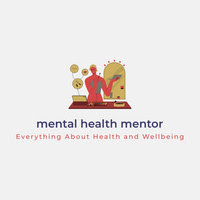Addiction is a multifaceted illness marked by recurrent drug use or engaging in risky behaviors even in the face of undesirable outcomes. It is a long-term, relapsing brain disorder marked by compulsive drug seeking, use, and abuse of drugs without regard for the consequences. An individual's general quality of life, mental health, and physical health can all be significantly impacted by addiction.
Analyzing AddictionWhat Causes Addiction: Genetic, environmental, and developmental variables all have a role in the development of addiction. Addiction can be influenced by a person's social environment, trauma, mental health issues, and genetic susceptibility. Additionally, the pharmacological effects of certain medications can lead to physical dependence and addiction.
Addiction can take many different forms, such as behavioral addiction (such as internet, gaming, and gambling addiction) or substance addiction (such as alcohol and drug addiction). The fundamental mechanisms of addiction are frequently the same, even though the particular behaviors and drugs may vary.
Addiction and the Brain:
Reward, motivation, and memory circuits in the brain are altered in addiction. Long-term substance misuse can change the structure and function of the brain, which can result in compulsive drug use and desire. This can make it difficult for people to overcome addiction in the absence of appropriate care and assistance.
Physical Health: Addiction can have a serious negative impact on one's physical health, increasing the risk of chronic illnesses, infectious infections, and organ damage. Abuse of substances can also affect a person's physical and cognitive abilities, making it more difficult for them to carry out regular chores.
Mental Health: Addiction and mental health issues like anxiety, sadness, and trauma-related illnesses are frequently linked. Co-occurring disorders can increase the intensity of addiction and increase the difficulty of getting well.
Effects on Social and Interpersonal connections: Addiction can cause interpersonal connections to break down, social isolation to occur, and poor performance at work or school. Addiction-related stigma can exacerbate social isolation and make it more difficult for sufferers to get care and assistance.
Seeking Help: The first step to recovery is identifying the symptoms of addiction and obtaining assistance. It is crucial to seek assistance from medical professionals, addiction counselors, or support groups in order to obtain a precise diagnosis and a customized treatment plan.
Treatment Strategies: Behavioral therapy, medicine, and support services are frequently used in conjunction for effective addiction treatment. Behavioral therapies that target the root reasons of addiction and assist in the development of coping mechanisms include motivational interviewing and cognitive-behavioral therapy (CBT).
Relapse prevention and recovery: Overcoming addiction is a lifelong process that calls for constant dedication and assistance. Attending support groups, changing one's lifestyle, and participating in aftercare programs can all aid in maintaining recovery and preventing relapse.
Conclusion
Addiction and the Brain:
Reward, motivation, and memory circuits in the brain are altered in addiction. Long-term substance misuse can change the structure and function of the brain, which can result in compulsive drug use and desire. This can make it difficult for people to overcome addiction in the absence of appropriate care and assistance.
Addiction's Effect
Physical Health: Addiction can have a serious negative impact on one's physical health, increasing the risk of chronic illnesses, infectious infections, and organ damage. Abuse of substances can also affect a person's physical and cognitive abilities, making it more difficult for them to carry out regular chores.
Mental Health: Addiction and mental health issues like anxiety, sadness, and trauma-related illnesses are frequently linked. Co-occurring disorders can increase the intensity of addiction and increase the difficulty of getting well.
Effects on Social and Interpersonal connections: Addiction can cause interpersonal connections to break down, social isolation to occur, and poor performance at work or school. Addiction-related stigma can exacerbate social isolation and make it more difficult for sufferers to get care and assistance.
Medication and Recuperation
Treatment Strategies: Behavioral therapy, medicine, and support services are frequently used in conjunction for effective addiction treatment. Behavioral therapies that target the root reasons of addiction and assist in the development of coping mechanisms include motivational interviewing and cognitive-behavioral therapy (CBT).
Relapse prevention and recovery: Overcoming addiction is a lifelong process that calls for constant dedication and assistance. Attending support groups, changing one's lifestyle, and participating in aftercare programs can all aid in maintaining recovery and preventing relapse.
To sum up, addiction is a difficult and complex disorder that calls for extensive care and assistance. Individuals and their loved ones can take proactive measures towards recovery and a happier, more satisfying life by being aware of the root causes of addiction, its effects, and the available treatment choices.





1 Comments
Addiction is a serious problem
ReplyDelete